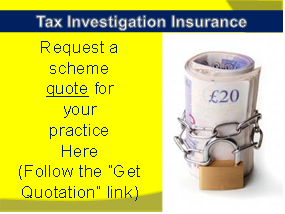HMRC proposed in January that similar tax avoidance cases should be grouped together, thus enabling HMRC to demand upfront payments of tax in cases that are similar and that have been successfully tried for evasion. The proposals by HMRC, relating to the open 65,000 marketed avoidance schemes, can be read here.
It seems that HMRC is trying to jump the gun and working on the assumption that certain tax avoidance schemes are in fact evasion, even though the schemes have not been ruled on as illegal in court.
Unsurprisingly not everyone is happy with this. Andrew Watters, director and tax expert at Thomas Egger LLP, is quoted by International Adviser:
“The report on HMRC proposals to target disputed tax bills is a sign of their frustration at the delays in collecting what they believe to be the ‘correct’ amount of tax.HMRC say the guidelines, which will be included in next week’s Budget, will “rebalance the economics of entering into avoidance schemes”; ie it is aimed at dissuading people/companies from entering into complex avoidance schemes.
HMRC believe that some are simply using the legal process as a delaying tactic to paying their tax.
In a balanced playing field, one might think that when the taxpayer wins the HMRC should pay a penalty for inconveniencing the taxpayer and forcing him to litigate. No such plans have been proposed.”
Gary Richards, tax partner at Berwin Leighton Paisner, said:
“HMRC are frustrated and have been criticised for the length of time such cases take but the problem is partly of their own making.CIOT president Stephen Coleclough said:
The proposals run the risk of, in effect, removing people’s right to appeal.
For some of the cases that were mass marketed one decision may be appropriate, but the proposals do not specify what type of cases they are aiming at.
There are subtle differences in the law and facts; this means that in many cases it is hard to use one case to determine thousands of others.
They haven’t thought through the principles, they need to be more targeted.
If people receive a notice telling them they have to pay they may be deterred from going to court, when in reality they could appeal on the grounds that their case is different to the one it is being grouped with.
People may end up paying tax after receiving one of these notices but only realise that they did not need to pay if a later decision goes against HMRC.
It is the absence of the ability to challenge notices that is the most pernicious problem.”
“Handing HMRC almost unprecedented executive powers to decide who falls within the mischief they intend to deal with, without the usual safeguards and appeal lightly, is not something which should be done lightly.Sadly it is a fact of life that emergency measures often end up being permanent!
If this is to proceed, HMRC should issue comprehensive guidance at the same time as the Bill is published to show what situations are to be tackled in this way. It should only apply to members of the same scheme or very close variants of it.
These emergency measures should not be a permanent state of affairs.”
Tax does have to be taxing.
Professional Cover Against the Threat of Costly TAX and VAT Investigations
Insurance to protect you against the cost of enquiry or dispute with HMRC is available from several sources including Solar Tax Investigation Insurance.
Ken Frost has negotiated a 10% discount on any polices that may suit your needs.
However, neither Ken Frost nor HMRCISSHITE either endorses or recommends their services.
What is Solar Tax Investigation Insurance?
Solar Tax Investigation Insurance is a tax-fee protection service that will pay up to £75,000 towards your accountant's fees in the event of an HM Revenue & Customs full enquiry or dispute.
To find out more, please use this link Solar Tax Investigation Insurance

HMRC Is Shite (www.hmrcisshite.com), also available via the domain www.hmrconline.com, is brought to you by www.kenfrost.com "The Living Brand"


No comments:
Post a Comment